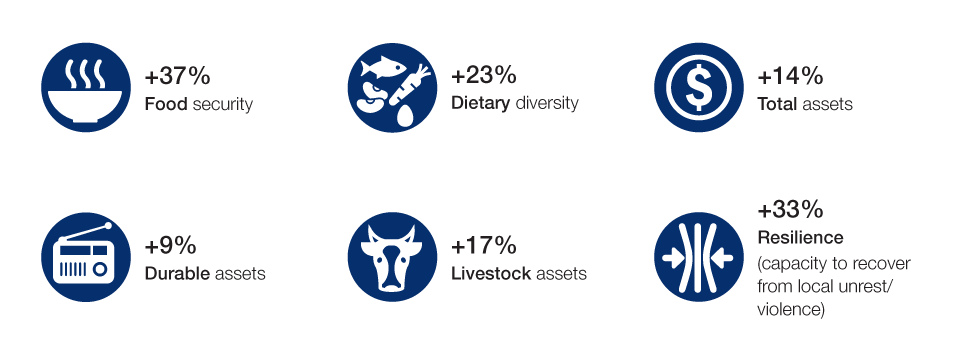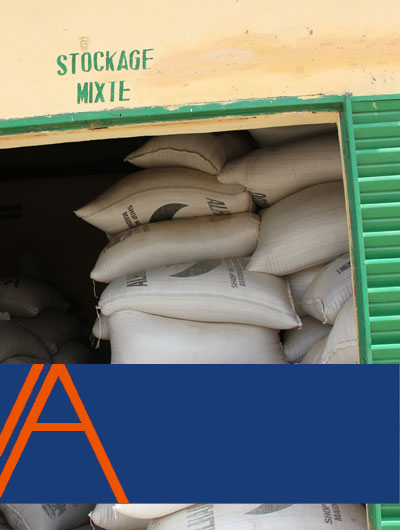Impact assessment: Rural Development Support Programme in Guéra
Impact assessment: Rural Development Support Programme in Guéra
The Rural Development Support Programme in Guéra (PADER-G) was implemented to improve the food security and livelihoods of farmers living in remote areas of Guéra, a drought-prone and conflict-ridden region of Chad. The programme constructed community cereal banks, where farmers could store sorghum, millet, berebere, groundnuts, sesame and maize during the harvest season and borrow grain during the lean season.
Groups of farmers, known as Community Committees, also received training on daily management and infrastructure maintenance of the cereal banks. Other project activities included road construction and provision of financial services to rural farmers. An ex-post impact assessment of PADER-G's cereal banks component was conducted in collaboration with the International Initiative for Impact Evaluation between November 2017 and September 2018, employing both qualitative and quantitative research methods.
Key impact estimates
An impact estimate is calculated as the difference in mean outcomes between the treatment group (project participants) and the comparison group (non-participants). By reducing post-harvest loses and evening out grain consumption among farmers throughout the year, PADER-G improved food security in the region. Farmers were able to diversify their diets and were less likely to sell their household assets during the lean season. The project contributed to improved social cohesion in Guéra, which in turn improved farmers' capacity to recover from civil unrest.

Main lessons
The findings recorded in this assessment provided the following key lessons:
- Mechanisms for continued maintenance and effective management of cereal banks are critical to sustaining impact on rural farmers. Training provided to community committees contributed to PADER-G's higher impact in comparison with other cereal banks in the region, outside the project, which were poorly managed and had deteriorating infrastructure.
- Setting SMART project goals and targets that are not overambitious in contexts where basic needs are lacking can generate real impact on poor farmers and sets a firm foundation for future projects.
- For the impact of cereal banks to go beyond food security and include profitable market participation, future interventions should consider intensively supporting farmers to access markets for inputs, cereals and oilseeds.
- Cereal banks can generate impacts on development outcomes beyond food security, such as dietary diversity, social cohesion and increased ability to deal with civil unrest or violence.
